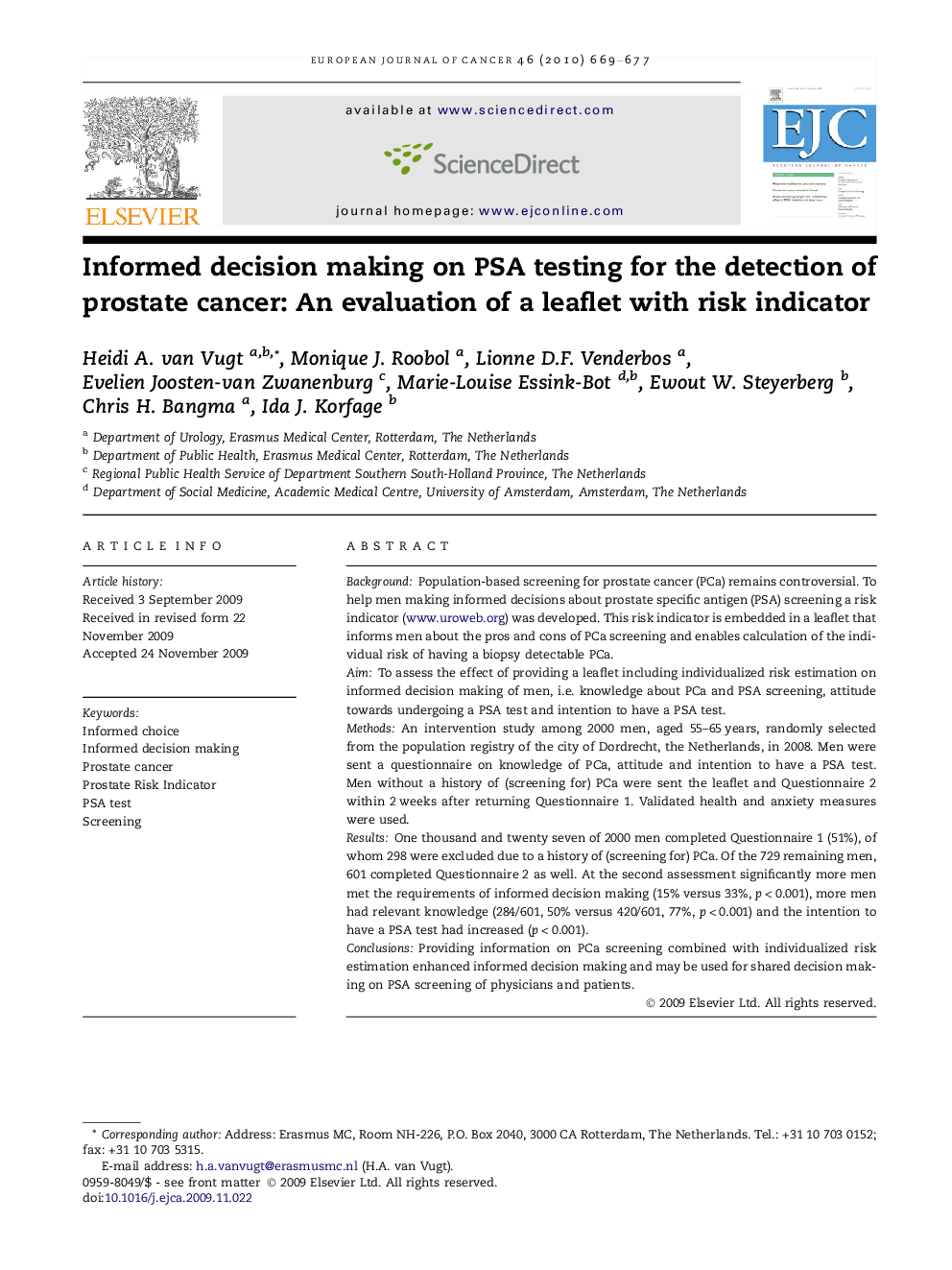| Article ID | Journal | Published Year | Pages | File Type |
|---|---|---|---|---|
| 2123884 | European Journal of Cancer | 2010 | 9 Pages |
BackgroundPopulation-based screening for prostate cancer (PCa) remains controversial. To help men making informed decisions about prostate specific antigen (PSA) screening a risk indicator (www.uroweb.org) was developed. This risk indicator is embedded in a leaflet that informs men about the pros and cons of PCa screening and enables calculation of the individual risk of having a biopsy detectable PCa.AimTo assess the effect of providing a leaflet including individualized risk estimation on informed decision making of men, i.e. knowledge about PCa and PSA screening, attitude towards undergoing a PSA test and intention to have a PSA test.MethodsAn intervention study among 2000 men, aged 55–65 years, randomly selected from the population registry of the city of Dordrecht, the Netherlands, in 2008. Men were sent a questionnaire on knowledge of PCa, attitude and intention to have a PSA test. Men without a history of (screening for) PCa were sent the leaflet and Questionnaire 2 within 2 weeks after returning Questionnaire 1. Validated health and anxiety measures were used.ResultsOne thousand and twenty seven of 2000 men completed Questionnaire 1 (51%), of whom 298 were excluded due to a history of (screening for) PCa. Of the 729 remaining men, 601 completed Questionnaire 2 as well. At the second assessment significantly more men met the requirements of informed decision making (15% versus 33%, p < 0.001), more men had relevant knowledge (284/601, 50% versus 420/601, 77%, p < 0.001) and the intention to have a PSA test had increased (p < 0.001).ConclusionsProviding information on PCa screening combined with individualized risk estimation enhanced informed decision making and may be used for shared decision making on PSA screening of physicians and patients.
